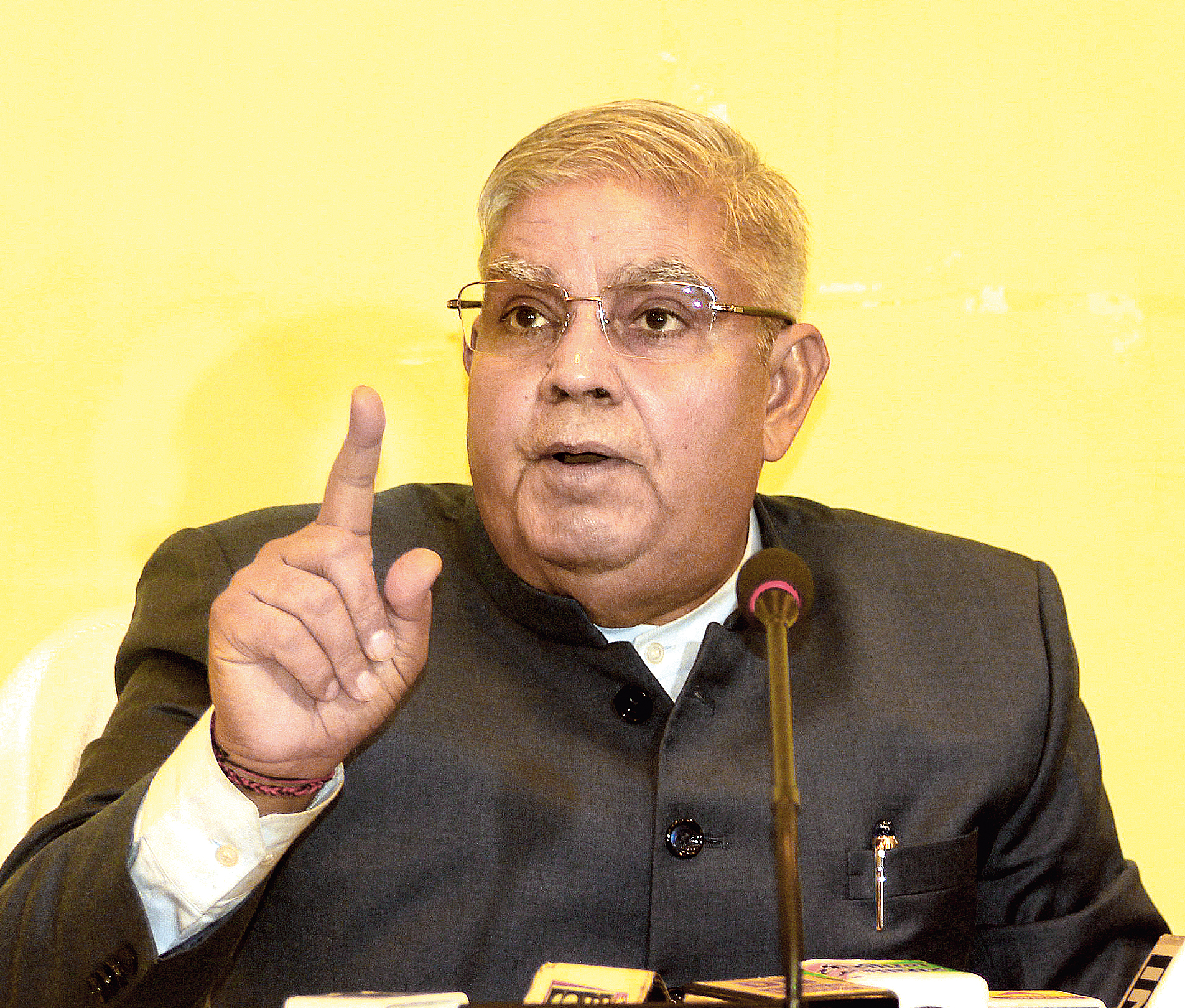Governor Jagdeep Dhankhar on Friday recommended “wider consultations” before deciding possible DLitt and DSc recipients and, according to some sources, complained that there was not “enough information” on this year’s choices.
However, at the end of a two-and-a-half-hour meeting of the Jadavpur University court, the chancellor “confirmed” the names recommended by a panel of deans, cleared by the university’s executive council and then supported unanimously by other court members.
Several members of the court said Dhankhar, the chair, was initially reluctant to confirm the names and was in favour of taking a decision only after he returned to Raj Bhavan.
A member of the court said Dhankhar sought to make a distinction between his role as the chairman of the court and the university chancellor.
“He went to the extent of saying that even if the court approves the name, he would decide on the confirmation at Raj Bhavan in his capacity as the chancellor. We opposed this. We contended that if he did not give any note of dissent at the meeting of the court, what prevented him from giving the confirmation there itself. Besides, he is chairman of the court only in his capacity as the chancellor.
“He relented following persuasion,” said the member.
Stepping out, Dhankhar told reporters: “The executive council recommended some names unanimously. The court unanimously approved the names. We are on the same page. I have respect for the worthy members of the court. We have approved the names, resolving that in future we will be extending our spectrum for wider consultation and involvement to get the best talent available, befitting the status of the university.”
Several members of the JU court said, they were not clear if Dhankhar wanted a deviation from the statutes when he sought “wider consultations”. They also pointed out that usually DLitt and DSc recipients were widely acknowledged and well-established figures of learning whose academic and other credentials were well documented.
“When vice-chancellor Suranjan Das sent a report to Dhankhar on October 9 following a query from his office about the selection procedure, he explained in detail the credentials of those listed for the honours. So the chancellor was in the know of their acclaim,” said a university official.
The list included poet Sankha Ghosh and former foreign secretary Salman Haider for DLitt and scientist C.N.R. Rao and Indian Statistical Institute Calcutta director Sanghamitra Bandyopadhyay for DSc. At the meeting of the court, Dhankhar complained that the names of the proposed DLitt and DSc did not have enough information to substantiate why they had been chosen.
“After prolonged deliberations we realised he was suggesting that there was not enough information to substantiate why Salman Haider was being considered for the honour. But we wonder whether a person of the stature of Haider, considered to be one of the accomplished diplomats, is required to have pages and pages of information on him,” said Omprakash Mishra, another court member.
“I told him how come someone who has spent so many years in Delhi does not know about Salman Haider.”
Another court member quoting Dhankhar, said: “The chancellor said who is this lady (Sanghamitra Bandyopadhyay)?”
The JU university statutes say, for any proposal for conferment of honorary degree shall “in the first instance be considered by a committee” composed of the VC and the deans of the faculty committee.
“The committee shall submit a reasoned report embodying its recommendation to the executive council. In case of every person recommended for the degree the report shall contain a statement of the grounds on which the recommendation is founded. The report of the committee shall be circulated to he members of the executive council….Degrees shall only be awarded if the recommendation of EC is approved by not less than three fourth of the members present at the meeting of the court and is finally approved by the chancellor”.
A university official wondered where was the room for deviation from this well laid out practice as contained in the statutes.










